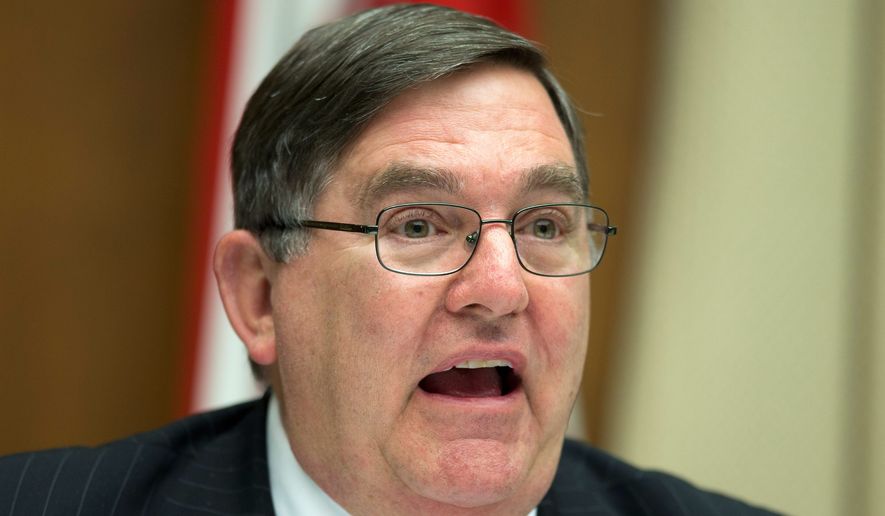A looming Supreme Court decision on Obamacare subsidies is forcing states to grapple with what it would take to embrace the controversial health law and set up their own insurance exchanges.
The push by a handful of states fearful of seeing their residents lose federal tax credits if the justices rule against President Obama could paradoxically end up cementing the law in place. That’s heaped even more pressure on congressional Republicans to have an alternative ready in time for the ruling, expected by the end of June.
“It underscores the need for us to be able to produce something before the court rules — to show that there is an alternative, that you don’t have to do that,” Rep. Michael Burgess, Texas Republican and vocal Obamacare opponent.
The case before the justices will decide whether the government can pay subsidies to residents in the 37 states that rely on the federal HealthCare.gov exchange, or whether only residents in the states that set up their own exchanges can get the Obamacare payments.
If the justices restrict the payments to state-run exchanges, millions of Americans would likely find their plans unaffordable, undercutting the law.
Pennsylvania Gov. Tom Wolf, a Democrat, has already told the Health and Human Services Department that he would be interested in setting up an exchange in order to keep roughly 380,000 state residents from losing tax credits.
SEE ALSO: Only 150K penalty payers signed up for Obamacare during extra time
And legislators in Maine are pushing for a similar arrangement there, hoping to shield 67,000 residents.
U.S. Sen. Ben Sasse, Nebraska Republican, has called for Congress to try to head off a stampede of states joining Obamacare by proposing a gradual reduction in subsidies outside of the health law to people potentially affected by the court ruling. That plan, which would let people keep their coverage for 18 months with subsidies that gradually scale down over that period and then disappear, would give the GOP breathing space ahead of the 2016 elections, which would be a referendum on the broader health law.
Another set of GOP lawmakers wants to lock in Obamacare subsidies for all states until 2017 while barring new customers and repealing the law’s mandates. Still others want to shift Americans to health savings accounts, a type of tax-advantaged fund that puts the onus on consumers to plan their health spending.
As they game out their strategy, Capitol Hill Republicans will look to GOP governors to hold the line against state Democrats, the insurance lobby or anyone else who pushes for a state-run exchange if justices invalidate the subsidies.
Illinois Democrats pushed for a state exchange last year, but ran out of time before the legislative session ended. This year, they face newly inaugurated GOP Gov. Bruce Rauner, whose spokeswoman wouldn’t commit to a plan, saying only that “the governor’s office will take appropriate action depending on how the Supreme Court rules.”
In Maine, Gov. Paul LePage is not keen on a state-run exchange, but is taking a wait-and-see approach to the court decision.
SEE ALSO: Oregon Gov. John Kitzhaber scrapped workable Obamacare exchange for political benefit
“The federal exchange was something he felt was appropriate, and we’ll look at the bill when it comes down,” LePage spokeswoman Adrienne Bennet said.
Any state wishing to join the federal exchange will have to grapple with how far to go. And some states that already have their own exchanges will have to see if they have gone far enough to qualify.
The key question for the justices is whether a state can “subcontract” with HealthCare.gov to handle its web enrollment, yet still claim it’s a state-run exchange that qualifies for subsidies, according to Avik Roy, a senior fellow at the conservative Manhattan Institute.
“It might suffice, it might not,” he said.
• Tom Howell Jr. can be reached at thowell@washingtontimes.com.




Please read our comment policy before commenting.